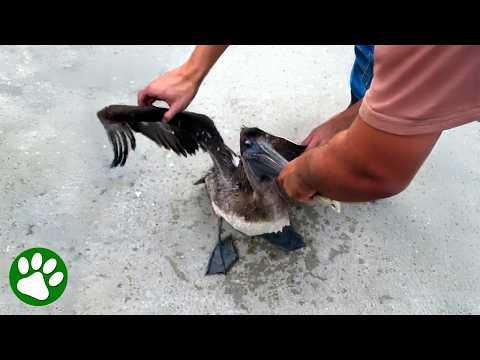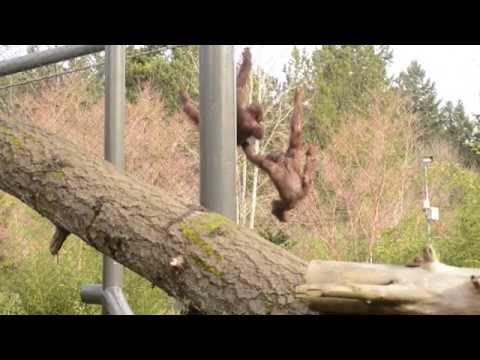Palm oil is used worldwide in thousands of products, from candy to shampoo to biodiesel. It's made from the fruit of the oil palm tree, which only grows in the tropics. To make space for oil palm trees, some companies cut down and burn tropical forests, which leaves many species struggling to find food, mates and shelter. Without forests, animals can become easier targets for poachers and be forced into conflicts with humans. In order to responsibly coexist with wildlife, the palm oil industry needs to avoid deforestation, maximize crop efficiency on existing plantations and allow wildlife to safely use the land. Together, these actions produce what is called "sustainable palm oil." By advocating for an industry shift toward certified sustainable palm oil, we can protect and responsibly manage the tropical forests that support life on our planet.
Video Script::
- [Narrator] Orangutans are called the gardeners of the forest. When they eat fruits, they
consume a lot of the seeds, next day when they poop, the seed is out, and more importantly, because
the orangutans can move long distances in the forest, they're disseminating the seeds away from the mother tree. It allows the forest to regenerate better. My name is Marc Ancrenaz,
I'm the scientific director for the French NGO, Hutan. I have been working
here in Sabah, Malaysia for 22 years now. We are in Kinabatangan, which is one of the most important
hotspots for biodiversity. At the same time, the Kinabatangan remains one of the prime areas
for production of palm oil for the entire country of Malaysia. Today the most of the area is covered with industry or palm oil plantation. So imagine you're an orangutan. You are used to living
in a very diverse forest where you have thousands of
different species of trees everywhere, and you come
to the edge of this forest and you see a sea of palms. One species of tree with the same height, it has to be daunting. And at the beginning,
personally I thought that these poor individuals were doomed and they would disappear at some point, but over the years, we have
been back to the same areas and realized that some of the orangutans have been surviving there. Some of them, the females, have
been able to produce babies in places where there
are nearly no trees left except for the palms. It's amazing to see that the
orangutan is able to adapt, somehow they have learned over the years to use this new habitat created by people. We have stolen their
forest habitat and now they start to use the new habitat
we have created ourselves. Well, I think the least we
could do is to help them to survive in this newly
created landscapes. Okay, the palm oil issue
is a very complex issue, there is no such thing as an easy answer . "Boycott" is an easy
answer that won't work. The palm oil industry is here to stay, we need to work with it to support what we call sustainable palm oil. Some of these companies
have actually approached us to try to create better landscapes. One way is to create corridors of trees, meaning that you plant trees
along the river for example, that will link to patches of
forests that are isolated. To achieve this, you
need the collaboration from the land owner. So we are working with a
few estates in Kinabatangan and they allocate some of
their areas as set aside to create these corridors that will give a safe passage to wildlife. So for me, there is no choice. If you want to give a chance
to elephants or orangutans, we also need to create
conditions that will sustain them outside of protected forest as well. I strongly believe that
RSPO is the way forward. Why? Because since last year, a company that is certified by the RSPO cannot do any deforestation. We need to recognize the
limits and the weaknesses of this certification approach. This is why it's key for the
consumers, NGOs, scientists and producers to engage with RSPO. We need to improve it. As long as the market doesn't recognize the value of certified oil, it doesn't really give a strong
incentive to the industry to improve their own practices. So if you want to do something that will be useful on the ground, is it actually to support
certified palm oil, RSPO palm oil.
























